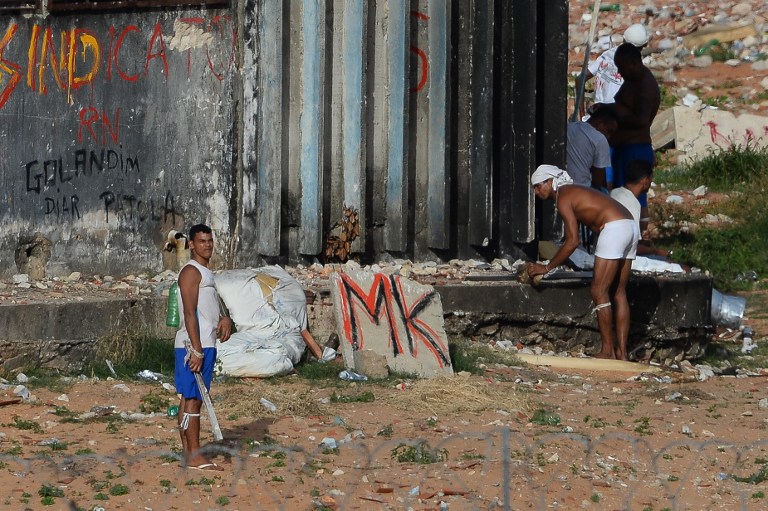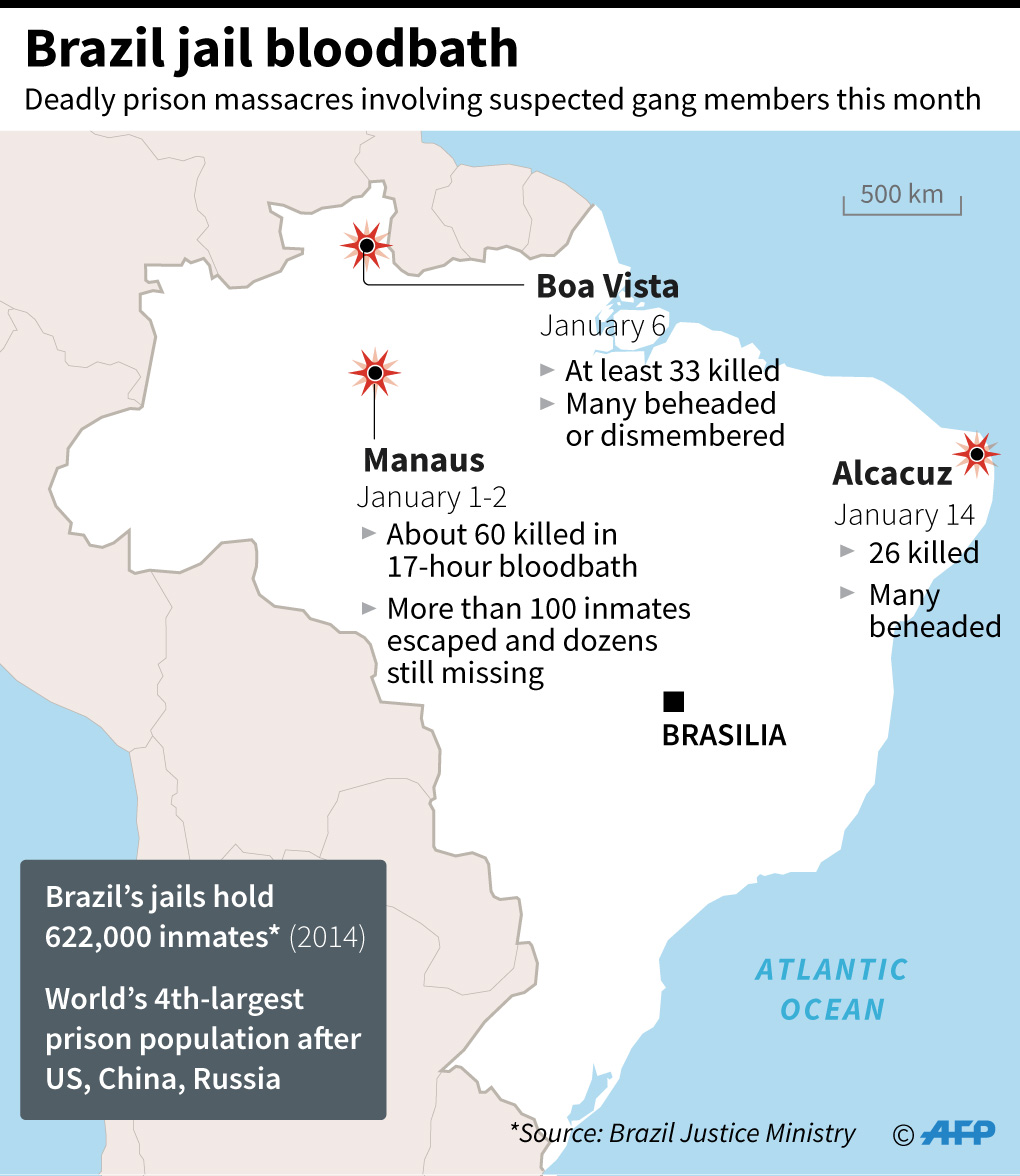
Brazilian police fired rubber bullets Tuesday at inmates who have taken over a jail where dozens were massacred over the weekend in the latest in a string of prison riots. Police positioned on top of the outer walls of the Alcacuz jail near the northeastern city of Natal fired at a crowd of inmates who had taken control of part of the complex. A total of 26 prisoners were killed in Alcacuz — many of them beheaded — during a violent riot that broke out late Saturday, according to officials.
/ AFP PHOTO / ANDRESSA ANHOLETE
by Johannes MYBURGH
Agence France-Presse
NATAL, Brazil (AFP) – Brazil’s government Tuesday ordered the armed forces to help secure the country’s overcrowded jails as police fought to separate rival gangs of inmates in one prison following a massacre.
Inmates climbed on the roof and set up barriers of furniture in a northeastern jail inhabited by warring rival drug gangs vowing to behead each other.
Police fired rubber bullets to try to keep apart two rival factions, sending the inmates fleeing in panic and drawing screams from their relatives gathered outside the prison walls.
A total of 26 prisoners were killed in a bloodbath at the weekend in the facility, the Alcacuz jail near the northeastern city of Natal.
Two days later, crowds of prisoners were still loose in the open air between the prison blocks and the outer walls of the complex.
Television images showed inmates sharpening machetes.
The governor of the surrounding Rio Grande do Norte state, Robinson Faria, said authorities were working to stop the prisoners escaping from Alcacuz.
After a series of violent prison riots, President Michel Temer “made the armed forces available to the states” to secure their jails, a presidential spokesman said.
The defense ministry scheduled a meeting for Wednesday to present an action plan.
Drug gang war
Experts say the violence is part of a war between drug gangs battling for control of the cocaine trade in Brazil, a key trafficking route to Europe.
The Natal riot was thought to have been a clash between Brazil’s biggest drug gang, the First Capital Command (PCC), and a rival called Crime Syndicate.
“The PCC is defying not only the state but also the regional crime cartels in its efforts to control the drug trade,” Faria said.
Gathered outside the jail, prisoners’ relatives said members of Crime Syndicate were trying to break into a prison block to attack PCC members.
One female relative showed AFP a video sent to her by her partner, an inmate in the jail.
“We have just one desire and that is to rip the heads off the PCC, and that’s what we’re going to do,” he shouted.
“We’re not going to let those bastards lay down the law on our turf.”

Prison guards on strike
The unrest raised fears that violence could spread to jails across the country — including the crime-plagued metropolis of Rio de Janeiro.
Prison guards there went on strike Tuesday in protest over unpaid wages, a symptom of Brazil’s economic crisis.
Rio prison guards’ union spokesman Gutembergue de Oliveira said there was just one guard for 200 inmates, although the government says there should be one to five.
“As well as a lack of prison guards, doctors, nurses and carers, we are faced with a huge jail population,” he said.
The Alcacuz prison was built for a maximum of 620 inmates but currently houses 1,083, according to the state justice department.
After two riots earlier this month, President Michel Temer announced the federal government would spend $250 million to build new prisons.
On Tuesday the focus was on containing the volatility, however.
Bonfire of human heads
The weekend bloodbath was the third mass-killing in Brazil’s overcrowded jails this month.
“It was the most barbaric thing I have seen in my life. They made a bonfire of human heads,” Faria told reporters in Brasilia, where he met with the government.
In total, 134 people have been killed in prison violence this year, Folha de Sao Paulo newspaper said, citing justice ministry figures.
About 60 inmates were killed in the northwestern city of Manaus on January 1. Many were beheaded and mutilated.
A further 33 died in a prison riot in Roraima state on January 6.







